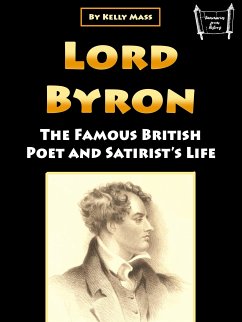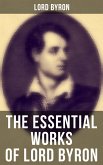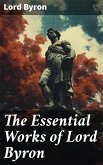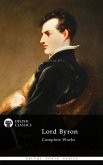George Gordon Byron, the 6th Lord Byron, graced the literary landscape as an eminent English poet and esteemed peer, bearing the title of Baron Byron. Within the realm of Romanticism, he stands as a towering figure, often hailed as one of England's preeminent poetic voices. His influence persists, resonating through the annals of literary history.
Notably, the enduring allure of his narrative epics, such as "Don Juan" and "Childe Harold's Pilgrimage," has etched Byron's name in the collective consciousness. Moreover, his shorter compositions, including the evocative "Hebrew Melodies," found resonance and popularity among avid readers.
A wanderer of the European landscapes, Byron's sojourns led him across the picturesque vistas of Italy, where he immersed himself in the cultural tapestry of Venice, Ravenna, and Pisa. Notably, his seven-year sojourn in Italy deepened his friendship with the acclaimed poet Percy Bysshe Shelley. This period of intellectual exchange and camaraderie added layers to Byron's creative journey.
The latter part of Byron's life unfolded against the backdrop of the Greek Conflict of Independence, where he assumed a gallant role, commanding campaigns against the Ottoman Empire. His valor and commitment to the Greek cause endeared him to the Greek populace, elevating his legacy in their eyes. The final chapter of Byron's life was marked by his demise from a fever following the arduous First and Second Siege of Missolonghi in 1824, leaving an indelible mark on the pages of history at the tender age of 36.
Notably, the enduring allure of his narrative epics, such as "Don Juan" and "Childe Harold's Pilgrimage," has etched Byron's name in the collective consciousness. Moreover, his shorter compositions, including the evocative "Hebrew Melodies," found resonance and popularity among avid readers.
A wanderer of the European landscapes, Byron's sojourns led him across the picturesque vistas of Italy, where he immersed himself in the cultural tapestry of Venice, Ravenna, and Pisa. Notably, his seven-year sojourn in Italy deepened his friendship with the acclaimed poet Percy Bysshe Shelley. This period of intellectual exchange and camaraderie added layers to Byron's creative journey.
The latter part of Byron's life unfolded against the backdrop of the Greek Conflict of Independence, where he assumed a gallant role, commanding campaigns against the Ottoman Empire. His valor and commitment to the Greek cause endeared him to the Greek populace, elevating his legacy in their eyes. The final chapter of Byron's life was marked by his demise from a fever following the arduous First and Second Siege of Missolonghi in 1824, leaving an indelible mark on the pages of history at the tender age of 36.









